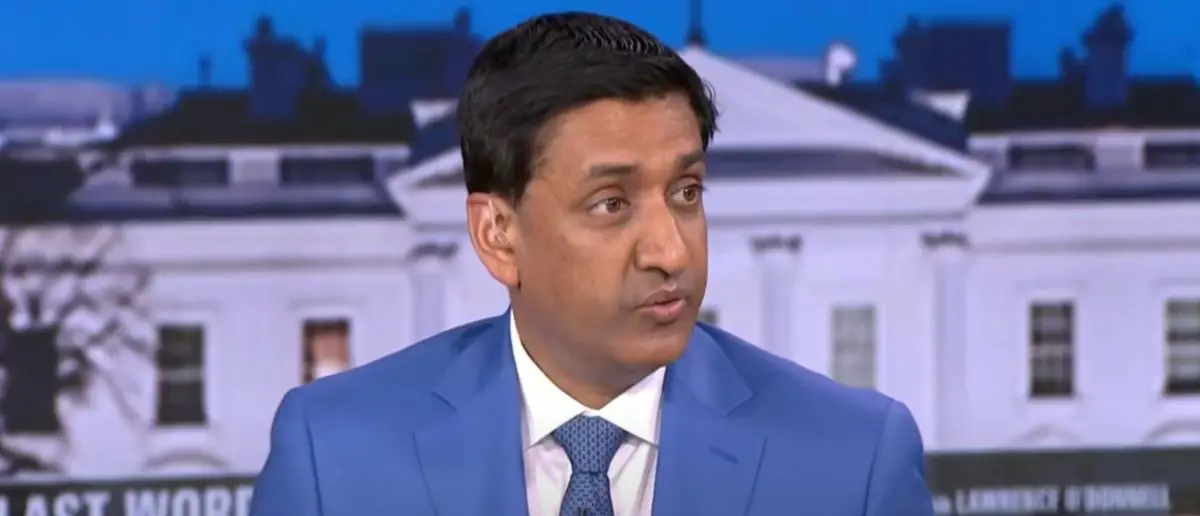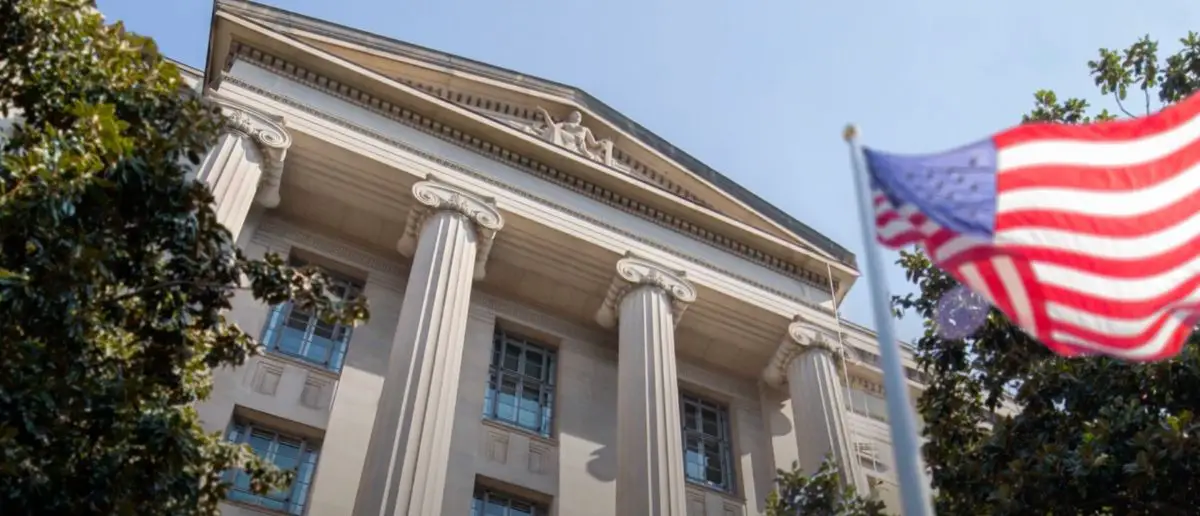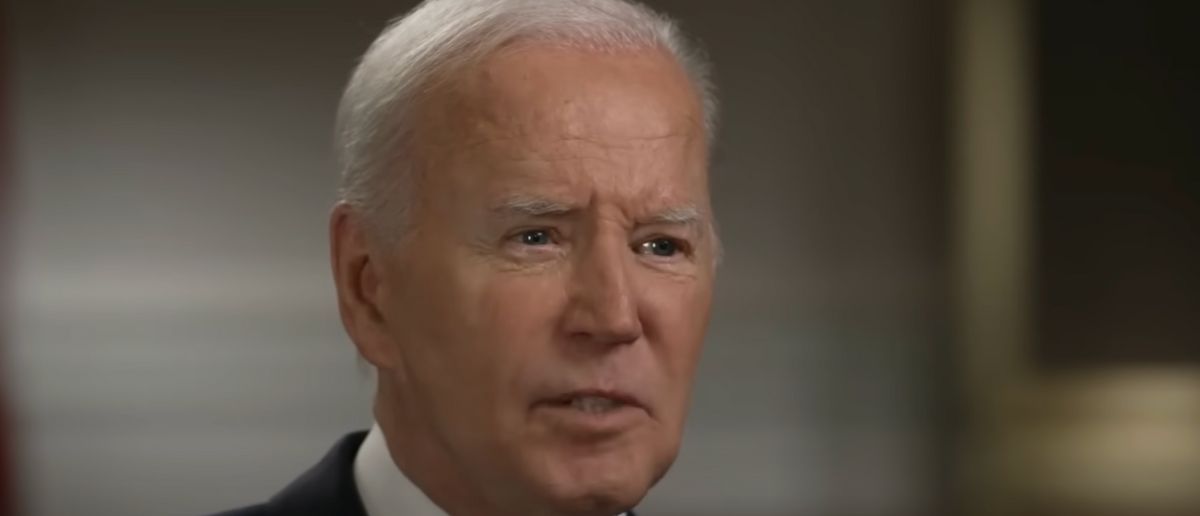
The Democrats are an outright mess. They have no idea what they are doing.
And now a top U.S. House Democrat went on TV to make this utterly moronic claim.
Democrat Congressman Ro Khanna Faces Sharp Criticism Over Medicare and Social Security Claims
On Thursday, Democratic California Representative Ro Khanna found himself in a heated exchange with CNBC host Joe Kernen after describing Medicare and Social Security as “efficient” programs. The confrontation unfolded during a discussion sparked by Kernen’s post on X, where he noted that tackling “fraud, waste, and abuse” in government programs enjoys support across party lines. Khanna’s defense of the two entitlement programs quickly drew a fiery response from the host.
“Oh, there’s certain things that are not inefficient. Medicare, Social Security,” Khanna stated, prompting Kernen to interrupt with an astonished, “What?” The host pressed further, incredulous at the congressman’s assertion. “Medicare is not ine—come on. Are you out of your mind? Medicare?” Kernen exclaimed. He went on to clarify his stance, suggesting that the inefficiencies might not stem directly from Medicare itself but from how it is exploited. “And I’m not saying it’s Medicare’s fault, necessarily. There are in — look around and look at the way Medicare is gamed out by the people that benefit from it or Medicaid. I think Medicare Advantage might be one of the things that we’re talking about. Right, Ro?” he added.
Khanna’s comments come against a backdrop of well-documented cases of fraud tied to Medicare. One notable example involved two Puerto Rico-based health plans that defrauded the program of more than $1 billion between 2007 and 2010. More recently, a hospital linked to James Biden, brother of former President Joe Biden, came under scrutiny in 2024 for an alleged fraud and kickback scheme involving Medicare funds. These incidents illustrate the vulnerabilities Kernen alluded to during the exchange.
Social Security, too, has faced its share of challenges. A July 2023 audit revealed that the Social Security Administration’s database included nearly 19 million individuals born before 1920 with no recorded death information—a glaring gap that raises questions about oversight. A subsequent audit in August 2024 found that the agency had made at least $72 billion in improper payments, even as recommendations from its inspector general to address such issues went unheeded.
The discussion also touched on recent leadership changes at the Social Security Administration. On February 18, President Donald Trump appointed Leland Dudek, previously the head of the agency’s anti-fraud office, as acting head following the resignation of Michelle King. King’s departure came after tensions flared with employees from the Department of Government Efficiency (DOGE), a new entity tasked with curbing waste and fraud while shrinking the federal government’s footprint.
DOGE’s efforts, however, have not gone unchallenged. A federal judge recently issued a ruling blocking the department from reviewing Social Security data to identify fraudulent activity, though other courts have permitted its initiatives to proceed. The conflicting legal outcomes signal an ongoing tug-of-war over how far DOGE can go in reshaping government operations.
While Khanna framed Medicare and Social Security as models of efficiency, Kernen’s pointed rebuttal—backed by examples of fraud and mismanagement—paints a starkly different picture. As DOGE continues its mission amid legal and political hurdles, the debate over these programs’ effectiveness and vulnerabilities is unlikely to fade anytime soon.
Trump Administration’s Fraud Crackdown Forces Social Security Recipients to Verify Identity In-Person
As part of a sweeping effort to curb fraud, the Trump administration is implementing new rules that could require millions of Social Security recipients to visit a local office to confirm their identity. The change, set to take effect on March 31, eliminates the option to verify identity over the phone, a move that aligns with the Department of Government Efficiency (DOGE) closing nearly 50 Social Security offices nationwide.
The Social Security Administration outlined the policy in a recent notice: “Individuals seeking [to file benefit claims and direct deposit changes] who cannot use their personal My Social Security account, which requires online identity proofing, will then need to visit a local Social Security office to prove their identity in person.” Previously, beneficiaries could handle these verifications through a phone call. Now, while they can initiate a claim by phone, they must complete the process face-to-face at an office.
This shift aims to tackle the estimated $100 million the agency loses annually to direct deposit fraud. The Social Security Administration explained that it is “increasing its protection for America’s seniors and other beneficiaries by eliminating the risk of fraud associated with changing bank account information by telephone.” However, the change introduces new challenges for recipients, particularly those unable to navigate online systems or travel to an office.
Timothy McBride, a public health professor at Washington University in St. Louis, weighed in on the trade-offs. “In order to reduce fraud, you have to make people come into the office and prove things, but that also raises the administrative costs,” he told Straight Arrow News. “So that’s the balance that we’re playing off here.” The push for in-person verification may strengthen security, but it could strain both the agency’s resources and the people it serves.
Customer satisfaction data from the Social Security Administration offers some insight into how this might play out. In 2023, 92% of people who visited an office reported being satisfied with the service, a stark contrast to the 68% satisfaction rate for phone interactions in 2021. The agency has long touted its in-person service as a strength, which could ease concerns about the transition. Still, with fewer offices available due to DOGE’s closures, wait times and accessibility could become issues for some.
Public opinion of the Social Security Administration remains mixed. A July 2024 Pew Research poll found that 53% of Americans view the agency favorably, while 32% hold an unfavorable opinion. The new policy could shift those perceptions, depending on how smoothly it rolls out.
The Trump administration has made cracking down on government fraud a priority, with officials pointing to vulnerabilities in benefit programs. Commerce Secretary Howard Lutnick, speaking on the All-In podcast last week, illustrated the challenge with a personal example. “Let’s say Social Security didn’t send out their checks this month. My mother-in-law, who’s 94, she wouldn’t call and complain,” he said. “She just wouldn’t. She thinks something got messed up, and she’ll get it next month. A fraudster always makes the loudest noise, screaming, yelling and complaining.”
Stay tuned to the DC Daily Journal.





